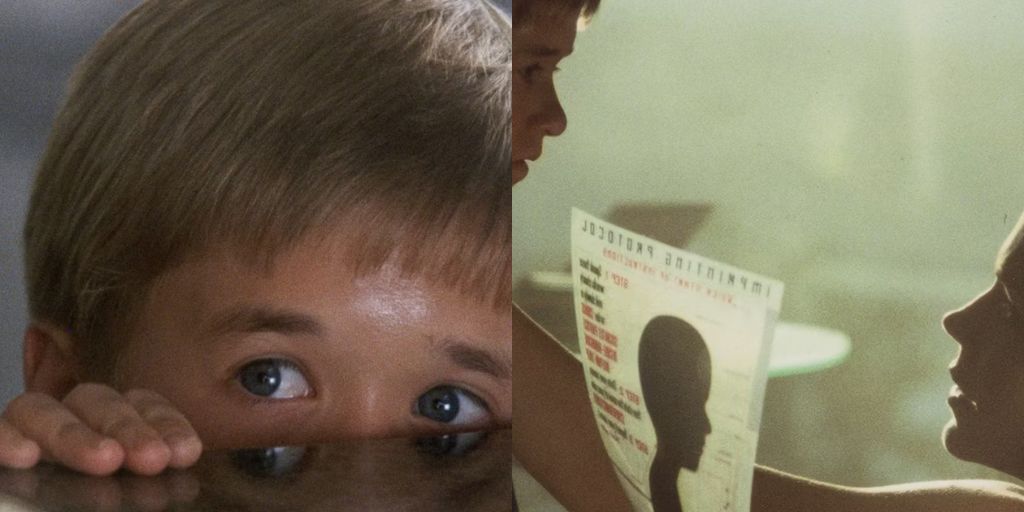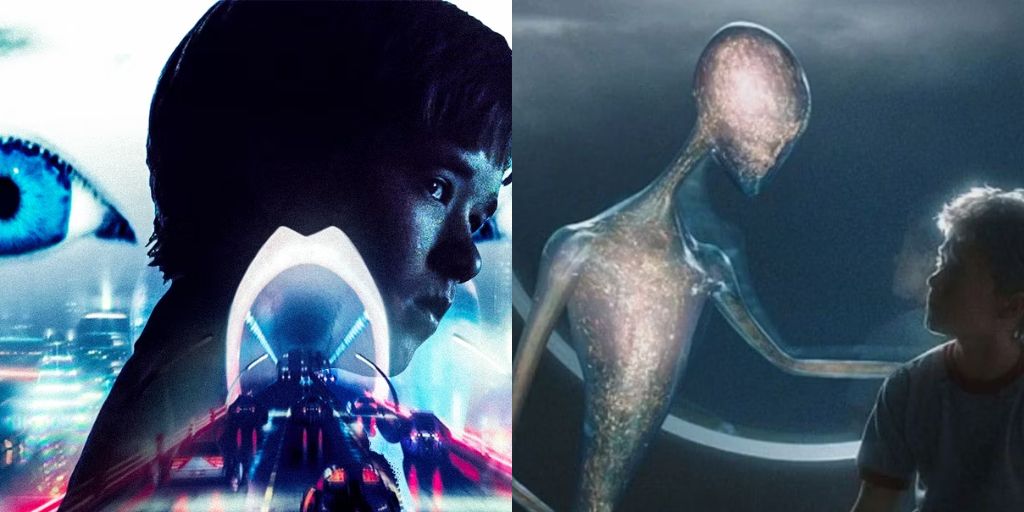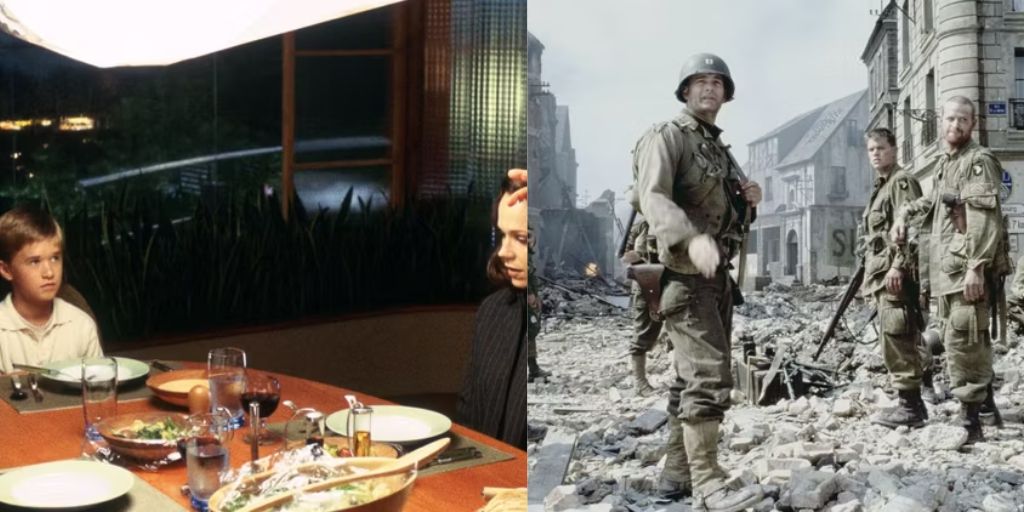When A.I. Synthetic Intelligence premiered in 2001, it sparked a wave of criticism, notably about its ending. Some critics felt that Steven Spielberg’s path launched pointless sentimentality into the movie. They believed Spielberg was including emotional depth that wasn’t wanted.
Nevertheless, the ending of A.I. is way from sentimental or uplifting. As a substitute, it gives a stark, emotionally intense ending that challenges viewers. The movie, which had been in improvement for many years beneath the path of Stanley Kubrick, displays a novel and somber imaginative and prescient.
Stanley Kubrick’s Imaginative and prescient for A.I.
Stanley Kubrick, identified for his meticulous and infrequently darkish cinematic type, started engaged on A.I. a few years earlier than its launch.
Kubrick’s preliminary imaginative and prescient for the movie was formed by his fascination with the potential of know-how and its impression on human feelings. He envisioned a narrative a couple of robotic boy, David, who might love and search to be liked. Nevertheless, Kubrick’s plan for the movie needed to wait till know-how caught up along with his bold concepts.
Kubrick’s dedication to the venture was unwavering. He confronted quite a few delays, not because of lack of curiosity, however as a result of he needed to make sure that the know-how of the time might successfully convey his imaginative and prescient to life.
This dedication mirrored Kubrick’s perception {that a} story a couple of robotic boy who resembles a human might solely be advised successfully with the suitable technological developments.
Throughout this prolonged improvement interval, Kubrick stored his shut good friend Steven Spielberg knowledgeable in regards to the venture’s progress. This was uncommon, as Kubrick had not shared as a lot about his different tasks, reminiscent of The Shining or Full Metallic Jacket.
Spielberg discovered this uncommon, given the secretive nature of Kubrick’s method to filmmaking. Within the Nineteen Nineties, Kubrick formally requested Spielberg to direct the movie, with Kubrick himself taking up the position of producer.


Spielberg, initially hesitant because of different commitments, ultimately agreed to direct the movie after Kubrick’s sudden loss of life in 1999. Spielberg took on the venture as a tribute to his late good friend.
The Story of A.I.: A Fashionable Fairy Story
A.I. is crafted virtually like a contemporary fairy story. The movie tells the story of David, a novel robotic boy performed by Haley Joel Osment, who has the power to like.
David’s journey begins when his human mom, Monica (performed by Frances O’Connor), abandons him. Pushed by a need to be liked and accepted, David units out on a quest to turn out to be an actual boy, hoping that this transformation will win again his mom’s affection.
The movie attracts clear parallels to Pinocchio, notably in its depiction of David’s quest. Very like Pinocchio’s journey to turn out to be an actual boy, David’s story revolves round his eager for love and acceptance. Nevertheless, the movie’s framing of David’s journey as a fairy story intensifies the emotional impression of its ending.
The narrative makes it clear that David’s quest isn’t just a easy journey however a profound journey pushed by deep emotional wants.
David’s quest leads him to find that he’s not as distinctive as he as soon as believed. His creator, Professor Allen Pastime (performed by William Harm), had designed David to be the primary of many comparable robots.
When David learns this harsh fact, it shatters his understanding of his personal significance. He finds a warehouse crammed with different robots like him and realizes that he’s only one amongst many. This revelation leads David to a devastating conclusion about his personal existence.
David’s Harrowing Journey to the Finish
The emotional core of A.I. is David’s intense need to be liked by his mom. This need drives him to extremes, resulting in a dramatic and tragic collection of occasions.
After discovering the reality about his existence, David’s despair reaches its peak. He leaps from a constructing, overwhelmed by the belief that he can not fulfill his quest and that his existence has been merely a placeholder.


As David searches for that means, he encounters a Blue Fairy statue at Coney Island, a part of an outdated Pinocchio exhibit. This discovery reignites David’s hope that he would possibly nonetheless discover a option to turn out to be an actual boy.
David, accompanied by his toy good friend Teddy, takes a car stolen by Gigolo Joe (performed by Jude Regulation) and descends additional into the depths of the ocean. This underwater journey represents David’s remaining try to search out solutions and fulfill his quest.
In a shocking twist, the movie jumps ahead 2,000 years into the long run. On this future, all natural life has disappeared, and robots have advanced into a brand new type.
These superior robots, often called Mecha, awaken David and Teddy. The Mecha, having by no means interacted with residing beings earlier than, are desirous to grant David his want. They resurrect David’s mom from a lock of her hair, however this resurrection is proscribed to only sooner or later. As soon as David’s mom falls asleep, she is going to die once more.
David lastly experiences the right day he had longed for, spending time along with his mom and feeling liked and accepted. As she falls asleep, she tells David that she loves him, offering him with a way of closure and peace. David’s remaining moments are crammed with a profound sense of contentment as he closes his eyes and finds peace in desires.
Deciphering the Ending: Actual or Phantasm?
The ending of A.I. could be interpreted in two distinct methods. One interpretation is that David experiences a real reunion along with his mom, who absolutely embraces him and expresses her love. This view means that David’s quest ends with a heartfelt and significant decision.
The choice interpretation is that David’s expertise isn’t solely actual. As a substitute, it could possibly be an approximation of his mom created by the Mecha.
This view means that the mom David interacts with is a clone or perhaps a constructed phantasm designed to meet his needs. This interpretation aligns with the movie’s recurring themes of actuality versus phantasm and the character of synthetic beings.
All through A.I., Spielberg reveals the concept that people view synthetic beings as threats. Regardless of the love some robots develop for his or her human creators, they’re usually discarded or rejected.


David’s eager for his mom’s love and his final realization of his personal insignificance spotlight the movie’s central theme of unfulfilled needs and emotional struggles.
The movie’s ending forces viewers to confront tough questions in regards to the nature of affection and the worth of synthetic experiences. Is David’s remaining second of happiness much less significant as a result of it’s not solely actual?
Or does the love he experiences nonetheless maintain worth regardless of its synthetic origins? The reply will depend on particular person views, however the movie’s plot of those themes provides depth to its emotional impression.
Kubrick’s Affect and Spielberg’s Interpretation
The event of A.I. and the collaboration between Stanley Kubrick and Steven Spielberg is a major side of the movie’s historical past. Some critics believed that Spielberg altered Kubrick’s unique imaginative and prescient, resulting in blended opinions of the movie’s ending.
Brian Aldiss, who wrote the quick story “Supertoys Final All Summer season Lengthy,” expressed considerations that Spielberg had added sentimental parts to Kubrick’s work. Aldiss felt that the ending was overly sympathetic and pushed by plot gadgets that didn’t absolutely align with the story.
Ian Watson, the screenwriter who labored carefully with Kubrick, had a extra constructive view of Spielberg’s interpretation. Watson maintained that the ultimate scenes within the movie have been trustworthy to Kubrick’s imaginative and prescient and have been executed as meant.
Spielberg himself confirmed this angle in interviews, stating that Kubrick’s unique remedy included a future setting 2,000 years forward, which matches the ultimate phase of A.I. Spielberg felt a powerful obligation to honor Kubrick’s imaginative and prescient and ensured that the movie remained true to the unique plan.
Displaying Darkish Themes in Spielberg’s Work
Regardless of Spielberg’s repute for uplifting movies, he has proven darkish themes all through his profession. Movies like E.T. and Saving Personal Ryan could also be identified for his or her emotional depth, however Spielberg has additionally tackled extra somber topics.
Shut Encounters of the Third Sort depicts a person’s obsessive quest to contact aliens, resulting in the dissolution of his household. Schindler’s Listing presents a harrowing portrayal of the Holocaust, highlighting the atrocities of battle. The opening D-Day sequence in Saving Personal Ryan stays some of the intense and practical depictions of fight in movie historical past.
In A.I., Spielberg continues this displaying of darkish themes. The movie examines how machines, even with superior capabilities, are discarded after they turn out to be out of date.
A chilling second within the movie happens when David encounters the “Flesh Truthful,” a touring present that destroys outdated robots whereas an viewers cheers. This scene underscores the movie’s critique of how society treats these deemed unworthy or out of date.


David’s discovery that he’s a part of a mass-produced line of robots results in a darkish and tragic response. His preliminary response to this revelation is to aim suicide, highlighting the movie’s scheme of existential despair and emotional anguish. Spielberg’s depiction of those darkish themes provides complexity to the movie and enhances its emotional impression.
The scene the place Monica abandons David within the forest is one other instance of the movie’s emotional depth. Monica’s determination to go away David relatively than combine him into her household displays society’s view of synthetic beings as disposable.
Her remaining phrases to David, “I’m sorry I didn’t inform you in regards to the world,” emphasize the cruelty of her determination and the cruel actuality confronted by David.